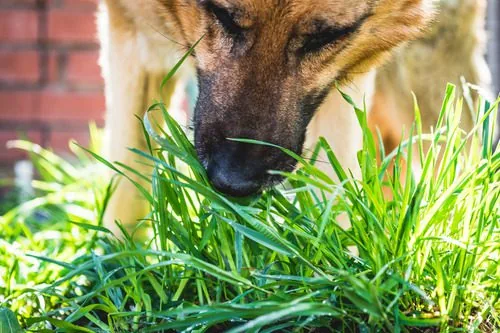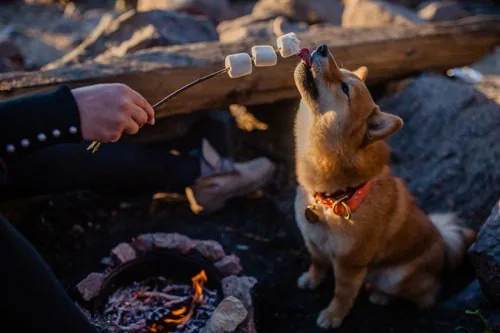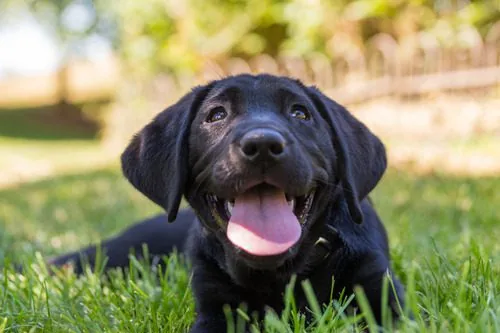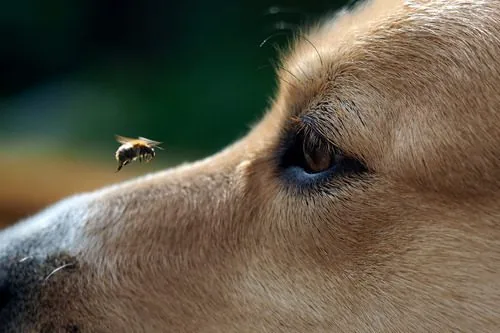Dog Dehydration: Symptoms, Treatment and Prevention
Dehydration in dogs is a common but often overlooked condition that can have serious health implications if not addressed promptly. This blog aims to empower pet owners with knowledge about the symptoms, risks, and preventative measures for dog dehydration, ensuring that your canine friends remain healthy and hydrated, especially during warmer days. At Boughton Square Animal Clinic in Bolingbrook, Illinois, we are committed to your pet’s well-being. If you notice signs of dehydration in your dog, please call us at (630) 759-0093 or schedule an appointment for a thorough examination.
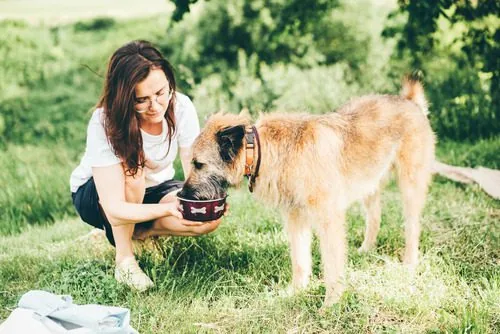
Recognizing the Symptoms of Dog Dehydration
Dehydration in dogs can manifest through various signs that may initially be subtle but can quickly become severe. Key symptoms include:
- Loss of elasticity in the skin: Gently pinch the skin on the back of your dog’s neck; if it doesn’t promptly return to its normal position, dehydration may be present.
- Dry gums and nose: Healthy dogs usually have moist gums and noses. Dryness in these areas is a common indicator of dehydration.
- Excessive panting: While dogs naturally pant to regulate their body temperature, excessive panting can also indicate dehydration.
- Lethargy or decreased energy levels: Dogs suffering from dehydration often show less interest in activities they usually enjoy.
- Sunken eyes: This is a more severe symptom that indicates a significant loss of body fluids.
- Reduced appetite or refusal to eat: Dehydration affects normal bodily functions, which can reduce your dog’s appetite.
If you observe one or more of these symptoms, it is crucial to take immediate action to rehydrate your pet and consult a veterinarian.
Potential Health Impacts
Dehydration goes beyond simple thirst; it can lead to critical issues within your dog’s body, including:
- Kidney failure: Without adequate hydration, the kidneys suffer and may fail to function properly, potentially leading to long-term damage.
- Electrolyte imbalances: Essential minerals vital for normal bodily functions can become unbalanced with significant dehydration.
- Hypovolemic shock: This life-threatening condition occurs when low blood volume causes a drop in blood pressure and the amount of oxygen in your body.
Understanding these risks underscores the importance of preventing dehydration and recognizing its signs early.
When to Seek Veterinary Attention
While mild dehydration can often be managed at home with increased water intake, certain situations require immediate veterinary care. These include continuous vomiting or diarrhea, no improvement after drinking water, or underlying health conditions. Boughton Square Animal Clinic is equipped to diagnose and treat dehydration effectively. Call us at (630) 759-0093 if your dog needs help.
Veterinary Treatment Options for Dehydration in Dogs
When home remedies are not enough to alleviate dehydration, veterinary intervention becomes crucial. Here’s what you can expect when you bring your dog to a clinic like Boughton Square Animal Clinic for dehydration treatment:
Thorough Examination
The veterinarian will conduct a comprehensive assessment, including checking vital signs, examining the gums and skin, and possibly running blood tests to evaluate the severity of the dehydration and to check for any underlying conditions that could be contributing to the dehydration.
Fluid Therapy
One of the primary treatments for dehydration is fluid therapy. This may involve subcutaneous (under the skin) or intravenous (IV) fluids. IV fluids are particularly effective as they allow for rapid rehydration and immediate restoration of electrolyte balance. Depending on your dog’s response to the initial fluid therapy, adjustments may be made. The vet may increase the fluid rate or switch to different types of fluids based on how well your dog is recovering.
Monitoring
During treatment, your dog will be closely monitored to ensure they are responding well to the therapy. Vital signs like heart rate, blood pressure, and hydration levels will be checked regularly.
Medication
If your dog’s dehydration is due to illness such as diarrhea or vomiting, appropriate medications will be administered to treat the underlying cause and prevent further dehydration.
Guidance on Home Care
After treatment, you will receive instructions on how to care for your dog at home to prevent future episodes of dehydration. This might include dietary recommendations, guidelines on adequate water intake, and advice on monitoring your dog’s hydration status.
Preventing Dehydration in Dogs
Prevention is the best approach to managing dog dehydration. Here are actionable steps to ensure your dog stays hydrated, particularly during hot weather:
- Ensure your dog has access to fresh, clean water at all times. Change the water frequently to encourage drinking.
- Keep track of how much water your dog drinks daily. Encourage drinking by using water fountains or adding water to dry food.
- Schedule walks in the early morning or late evening when temperatures are cooler.
- Whether indoors or outdoors, ensure your dog can retreat to a cool, shaded spot away from direct sunlight.
- Incorporate wet food into your dog’s diet to increase fluid intake.
Extra Tips for Warm Days
On particularly warm days, increase vigilance over your dog’s hydration status. Consider carrying a portable water bottle during walks and provide cooling mats or damp towels for your dog to lie on. Monitoring and adjusting your dog’s activity level and water consumption proactively can prevent dehydration and its associated risks.
Keeping Your Dog Safe and Hydrated
Dehydration in dogs is a preventable condition that should not be taken lightly. By understanding the symptoms, recognizing the risks, and taking appropriate preventative measures, you can ensure your dog remains healthy and hydrated. Remember, at Boughton Square Animal Clinic, we are here to help. Should you have concerns about your dog’s hydration status, please contact us at (630) 759-0093 or visit our clinic in Bolingbrook, Illinois, to ensure your pet receives the best care possible.
Recent Posts
6 Possible Causes for Your Cat’s Sneezing
6 Possible Causes for Your Cat’s Sneezing Cats are known for their curious and playful nature, but…
Why is My Dog Eating Grass?
Why is My Dog Eating Grass? Dogs are known for their curious behaviors, and one that often…
Can Dogs Eat Marshmallows?
Can Dogs Eat Marshmallows? Marshmallows are a popular treat for many people, but pet owners often wonder,…
Can Dogs Get Sunburn?
Can Dogs Get Sunburn? As summer approaches and the days get longer, many pet owners look forward…
What To Do If Your Dog is Stung by a Bee
What To Do If Your Dog is Stung by a Bee As warmer weather arrives and outdoor…
About Boughton Square Animal Clinic
Since 1979, Boughton Square Animal Clinic has served Bolingbrook, IL and surrounding communities as both a veterinary care provider and a devoted partner in treating your animal family members for life.



